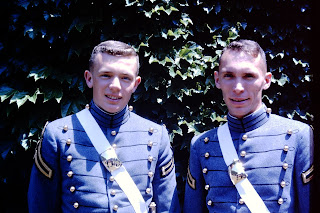Readings: Is 49:1-6; Ps 71:1-2, 3-4a, 5ab-6ab, 15 and 17; Jn 13:21-33, 36-38
A few years ago, I read a remarkable novel by Gene Wolfe about a soldier, a mercenary who fought for the Persians during the Greek-Persian Wars in the fifth century before Christ.
What made it so interesting is that our hero suffered a head wound that left him with almost no short-term memory. By the end of each day, he’d forgotten everything that happened the day before. And so he kept a diary on a scroll, keeping track of people, events, conversations. Each day he read the scroll, or at least parts of it.
But it really didn’t help him very much, because so much of life is defined by relationships with others. For him, all others were strangers, even those who’d normally be considered close friends. Eventually he saw his affliction as a kind of blessing, and memory as a kind of curse. Lacking memory all became new and interesting. Like a child, he appreciated the world as it unfolded before his eyes.
Anyway, I couldn’t help but think of this book as I reread John’s Gospel the other day. We’ve heard or read the Gospel story so often that the wonder of it all can be lost. Thanks to our memories, we know what will happen next, and this can cause us to ignore that which is most meaningful. This time, as I read John, I tried to read it as if for the first time, as if I were one of the disciples, living these events without the benefit of hindsight.
What struck me was how reasonable the disciples seemed in their on-again, off-again belief. Before I’d always been exasperated with them and found myself saying, “Oh, c’mon guys, how stupid can you be? Haven’t you figured out who Jesus is?” But now, I could even empathize with the Pharisees.
I found myself viewing the Gospel from a human point of view, a perspective that also caused me to see both Peter and Judas differently. Both men were put to the test, weren’t they? And both failed miserably.
And yet, when we look at them, we can’t help but notice the difference. Judas deliberately betrayed his Master. We can’t fully grasp his motives, but from all indications it was a cold and calculated act.
But Peter…Peter acted impulsively, out of human weakness and cowardice. He neither intended, nor expected to do what he did. And in a moment of weakness, Peter’s bravado crumbled. He denied His Lord with an oath and a curse.
Peter seems to be one of those guileless people whose words mirrored his thoughts, who always spoke with his heart, even though he would ultimately betray those words because of a weak will. Peter vows to die for Jesus. It’s a vow he will break that very night, but one he will ultimately keep, years later.
But Judas…he makes no vow that night, but in his treachery, he brings about Jesus' death, a death that redeems us. John tells us Satan entered into Judas when he rejected Jesus and departed to complete his deadly errand.
That’s what Satan can do, brothers and sisters, but only if we let him. He can twist love and turn it into hate. He can turn holiness into pride, discipline into cruelty, affection into complacency, trust into despair.
Peter, though, even in his sinfulness, rejected Satan and continued to trust in Jesus. He continued to trust in our loving, forgiving God. While Judas, in his sinfulness, fell into despair, a despair that denies forgiveness, a despair that denies love, a despair that rips any vestige of hope from the heart.
Brothers and sisters, we know we’re all sinners. We all betrayers of sorts. But I like to think you and I are more like Peter, sinners who still love the Lord, and who never forget how much He loves us, and how willing He is to forgive us, again and again.













